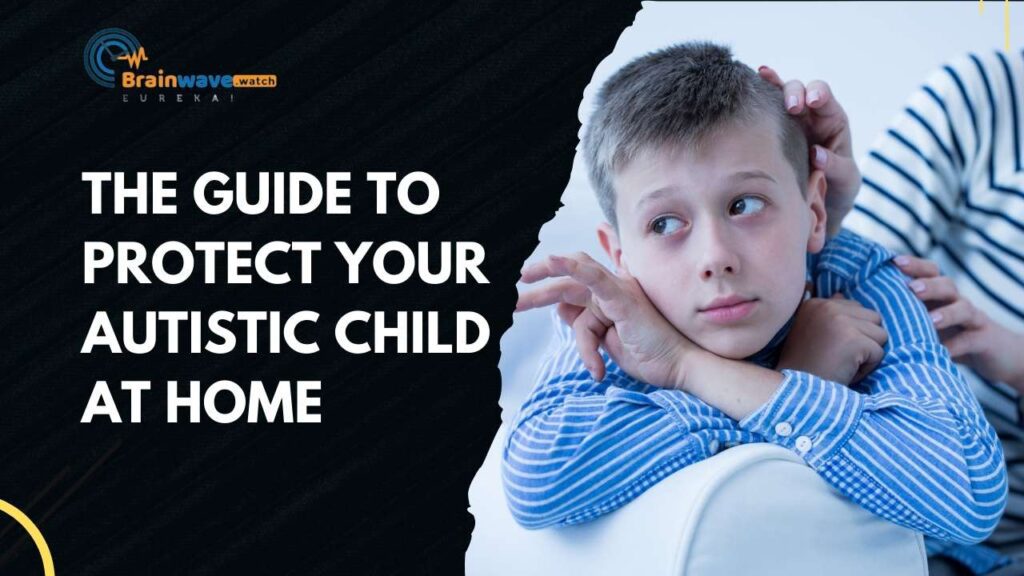Christmas is one of the most magical and special times of the year, but for parents and caregivers of children with autism, it can be a stressful and challenging experience.
In this article, we’ll explore the unique needs of autistic children and provide strategies for making their Christmas more magical and enjoyable. We’ll discuss the importance of understanding autism, and offer tips for creating a stress-free environment with sensory-friendly decorations, special traditions, and an engaging gift-giving experience.
We’ll also share some advice on playing music that can provide comfort to those with autism. By following these simple tips, you can help create a Christmas that is truly special for your autistic child.
Strategies for Creating a Magical Christmas
When it comes to Christmas, autistic children may need extra help to make it a magical experience. The holiday season can become stressful for both parents and children with autism, as it can be filled with too much stimulation and social interaction. To help make Christmas more enjoyable, there are some strategies that parents and caretakers can use to create a more magical experience.
First, it is important to create a sensory-friendly environment. This means keeping decorations and lights tasteful and not too bright. Christmas music should also be kept to a minimum, and if possible, try to find versions of songs that have fewer lyrics and are not sung too loudly. Setting up a sensory station with soft pillows, blankets, and comfy chairs is also helpful for autistic children to help them manage sensory overload during the holiday season.
Second, routine is essential for autistic children. Try to stick to a familiar routine, even during the Christmas season. This could involve the same bedtime, meal times, and activities that the family does all year round. Keeping these regular activities helps children with autism feel more comfortable and secure during an otherwise overwhelming holiday season.
Finally, it is important to be mindful of the expectations placed on autistic children during the holidays. This means avoiding large, noisy family gatherings and instead focusing on smaller, more intimate occasions. Quality time is much more important than quantity and ensuring that autistic children are given the time and space to relax and enjoy the holidays is key.
1. Creating a Stress-Free Environment

1. Set boundaries. This can help keep your child feeling secure and comfortable. Establishing ground rules that your child agrees to can help them feel in control and they will know what is expected of them.
2. Provide structure. Having a regular routine throughout the holiday season can help your child feel safe and calm. This means building in downtime for your child to rest or engage in calming activities, such as reading or drawing.
3. Use sensory tools. For some autistic children, certain smells or feels can be comforting. Consider investing in sensory tools, like weighted blankets or aromatherapy diffusers, to help your child relax.
4. Limit noise. Make sure to create a quiet environment for your autistic child to retreat to. This could be a bedroom, a playroom, or even a quiet corner in the living room.
5. Offer choices. Allowing your child to make decisions about what activities they take part in can help them feel more secure during the holidays. This could be something as simple as what type of decorations to put up or what type of food to prepare.
6. Talk about it. Open communication with your autistic child is key. Take the time to discuss any potential triggers that may arise during the holidays and how they can be managed. This can help your child feel more prepared and in control.
Read also: 5 Ways to Help Your Special Needs Children Express Themselves
2. Using Sensory-Friendly Decorations
Making Christmas magical for children with autism can be a challenge due to their sensory sensitivities. For many children, the bright, flashy, and loud decorations that are often associated with the holiday season can be overwhelming and unpleasant, leading to further stress and anxiety which can hinder a family’s ability to really get into the holiday spirit.
However, that doesn’t mean your family has to miss out on the festive, wintery decorations that come along with the holidays. By focusing on sensory-friendly decorations, you can make Christmas magical and inclusive for the entire family, while still managing the sensitivities of your autistic child. Here are a few tips to get you started on creating a sensory-friendly Christmas season.
First, try to stick with smaller decorations that are calming and low-stimulus. Avoid bright, flashy decorations that may be overwhelming, and look for ones with warm, calming colors and soft shapes.
Additionally, keep the music to a minimum and opt for fairy lights or small LED strings instead of larger, louder lights. Finally, you can create a quiet corner in your home where your child can go to relax and take a break from all the sensory stimulation if needed.
By following these tips and focusing on sensory-friendly decorations and activities, you can create an enjoyable and magical Christmas experience for your family, despite the challenges that may come with having an autistic family member.
Read also: The 5 Best Christmas Gifts For Kids With Autism
3. Making Memories with Special Traditions

However, with thoughtful planning and preparation, families can create magical moments to be treasured and remembered for years to come. To ensure these cherished memories are made, it is important to focus on implementing special traditions that acknowledge and honor the unique needs of your autistic child.
One key tradition to consider is decreasing the noise level in the home during the holiday time. This may mean limiting the number of visitors or festivities in the home, playing softer music, or avoiding large gatherings. Many autistic children struggle with sensory overload, so eliminating potential triggers can help make the holiday season more enjoyable and manageable.
Another tradition to include is ensuring there is a healthy balance of both enjoyable and challenging activities. Autistic children may tire easily and be overwhelmed by too much stimulation, but well-planned activities can provide the opportunity for fun and learning.
Consider setting aside time for arts and crafts projects, outdoor activities, or educational games that are tailored to the individual needs of your autistic child.
Lastly, it is important to remember to enjoy the moment. The holidays can be a stressful time for both parents and children, so take a moment to savor the joy and cherish the memories you are creating. Make sure to take plenty of pictures and videos to remember these special moments for years to come.
Read also: How Self-Management Can Improve Social Skills In Autism
4. Creating an Engaging Gift-Giving Experience
When it comes to creating an engaging and memorable Christmas experience for autistic children, it’s important to start with gifts that are meaningful and interactive.
Autistic children often experience sensory overload, so it’s important to choose gifts that are tailored to their individual interests and abilities. High-tech gifts can be a great options, such as educational technology, interactive toys, games, or even robots and drones. Craft supplies, books that feature characters with autism, and building blocks can also be fun and engaging for autistic children.
When it comes to giving presents, it’s important to carefully consider the placement of the gifts and the environment for unwrapping them.
Try to create a calm and comfortable setting, with fewer distractions and fewer people. You can also let the child have control over the gift-opening experience, such as allowing the child to decide when and how the presents will be opened.
It’s also important to be mindful of the language you use when giving gifts. Instead of asking the child if they’re excited or happy, try saying things like ‘I hope you like this or ‘I chose this with you in mind’. This helps to create an atmosphere of acceptance and understanding. Finally, don’t forget to take photos to capture the experience and create lasting memories.
5. Playing Music Appropriate to Mood and Sensitivity
Making Christmas magical for autistic children involves many considerations and special care. One important aspect of creating a special holiday experience for children on the autism spectrum is selecting music that is appropriate for their moods and sensitivities.
Music has the power to bring comfort and joy, as well as spark imagination and creativity. To make Christmas memorable for autistic children, it is important to choose music that is both familiar and appealing to them.
Familiar Christmas songs can be effectively used to help children on the autism spectrum to understand the spirit of the season. It can also be used to build anticipation, as it helps them identify the feeling of anticipation that comes with the special season. The right selection of music can make festive moments even more memorable.
When it comes to choosing music for autistic children, it is important to take into account the different sensitivities that autistic children may have. For instance, some autistic children may be sensitive to loud or sharp noises, so it is important to choose music that is not overly loud or abrasive. It is also important to be mindful of the lyrics of the music and ensure that they are age-appropriate and do not contain any inappropriate language.
Finally, it is important to remember that music is a powerful tool to bring joy and comfort to autistic children during the Christmas season. By carefully selecting songs and music, parents and caregivers can create a special holiday experience for their autistic children that will be remembered for years to come.
Read also: Effects of Music Therapy for Special Needs Teens with Autism
Conclusion
Christmas can be a difficult experience for children with autism and their families, as the festive season is filled with unexpected sounds and sights that can cause overstimulation. But by being mindful of the needs of autistic children and considering their likes and dislikes, parents and caregivers can make the season of giving a truly magical experience.
Utilizing sensory-friendly products, embracing alternative holiday traditions, and focusing on communication and connection can help create a stress-free holiday season for all family members. And most importantly, remember to have patience and enjoy the special moments that come with having an autistic child in the family. With a little creativity and understanding, Christmas can be a wonderful experience for all.







